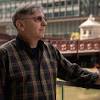World Trade Center
2024 - 9 - 11Healing After 9/11: The Resilient Stories from Ground Zero!
9/11 survivors - community support - Dr. Paul G. Clark - first responders - health care policies - Mark Shore - mental health - Michael Vaiani - New York City - September 11 attacks - terrorism - World Trade Center Health ProgramDiscover how survivors like Michael Vaiani and dedicated doctors are still on the journey of healing years after the World Trade Center attacks!
Twenty-three years after the tragic events of September 11, 2001, the echoes of that day continue to resonate through the lives of countless individuals. Michael Vaiani, a survivor of the terrorist attacks on the World Trade Center, often reflects on the immense gratitude he feels for the compassion and care he received in the aftermath. The injuries sustained on that fateful day weren't just physical; they were a complicated tapestry of emotional and psychological scars. Yet, programs like Rutgers' World Trade Center Health Program have been pivotal in addressing these deep wounds and providing essential support to those still navigating the long road of recovery.
Among those affected was Mark Shore, an Evanston native who stepped off the PATH train on September 10, 2001, with the world at his feet, not realizing the events about to unfold would change his reality forever. On that day, Shore was in the heart of the chaos, experiencing firsthand the indescribable fear and uncertainty that enveloped New York City. Now, more than two decades later, both he and Michael are emblematic of the resilience that emerges in the wake of tragedy, joining together to tell their stories in hopes of helping others make sense of their experiences.
Compassionate care remains a key pillar in the journey towards healing, as dedicated doctors and healthcare professionals tirelessly work with survivors like Michael and Mark. These medical heroes work not only to address physical ailments but also to provide mental health support, which is often overlooked in discussions surrounding trauma. The lasting effects of 9/11 are still profoundly felt, especially among first responders and law enforcement officers, who have faced a shocking increase in health complications and mortality from conditions linked to their exposure during the rescue and recovery efforts.
What makes the story even more compelling is that organizations committed to the health of these individuals have emerged as sanctuaries for healing. These initiatives not only offer medical care but also emphasize community building, helping survivors connect with one another and share their unique journeys. The lingering legacy of 9/11 reminds us that healing is not a destination but a continuous journey fraught with struggles and milestones.
As we remember the lives lost that day, it is important to shine a light on how the first responders and victims continue to face health battles, with an alarming statistic indicating that more law enforcement officers have died from 9/11-related illnesses than in the attack itself. The strength and resilience of those affected by the tragedy serve as a potent reminder of the human capacity to persevere even under the grimest of circumstances. It's a testament to the spirit of New York and the unwavering bonds that can blossom in the most adverse conditions, encouraging us all to approach life's challenges with hope and shared humanity.

Rutgers' World Trade Center Health Program still healing wounds of ... (ROI-NJ.com)
Michael Vaiani, a survivor of the terrorist attacks on the World Trade Center on Sept. 11, 2001, is grateful for the compassion and care he received from ...

The Evanston native who was in the World Trade Center on 9/11 (Evanston Now)
Twenty-three years ago, on Monday, Sept. 10, 2001, Mark Shore stepped off the PATH train that ran from his home in Hoboken, New Jersey, to the base of the ...

This local doctor is still healing wounds of 9/11 (WNYC)
On September 11, 2001, terrorist attacks on the World Trade Center in lower Manhattan killed nearly 3,000 people and changed New York -- and the world -- as we knew it. According to New York City data, more law enforcement officers have died from ...
Explore the last week
- 2024 - 12 - 20, 20 topics across 190 articles.
- 2024 - 12 - 19, 44 topics across 558 articles.
- 2024 - 12 - 18, 41 topics across 543 articles.
- 2024 - 12 - 17, 34 topics across 360 articles.
- 2024 - 12 - 16, 44 topics across 494 articles.
- 2024 - 12 - 15, 45 topics across 721 articles.
- 2024 - 12 - 14, 37 topics across 470 articles.